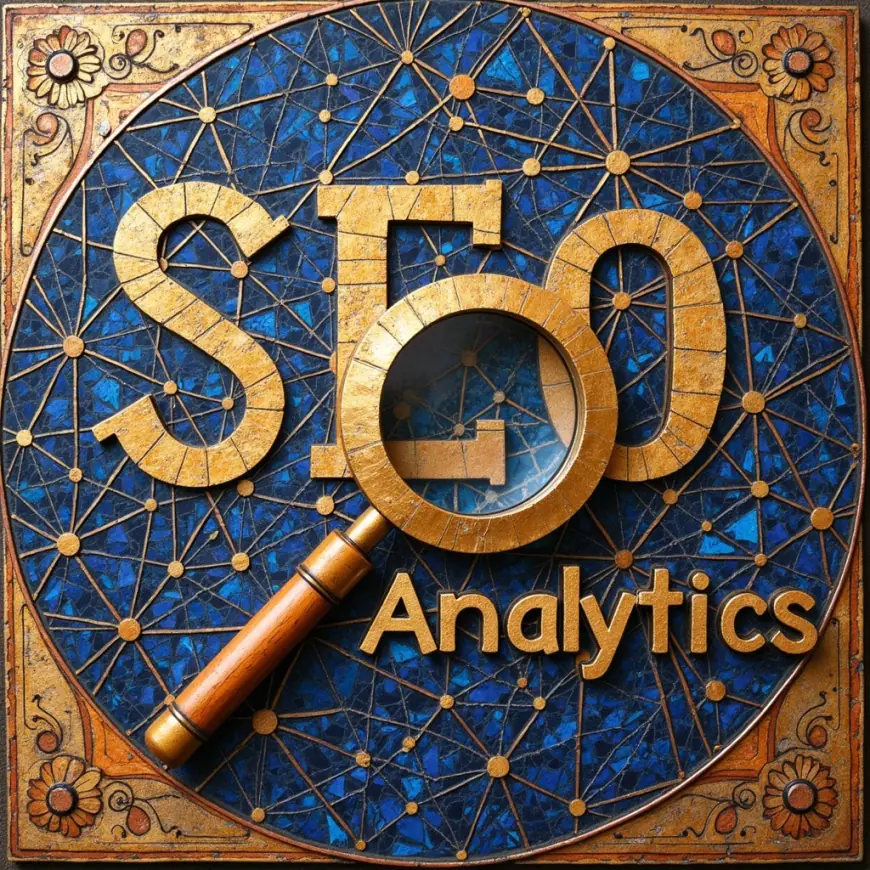Turn Search Console Data into SEO Gold with AI Automation
In 2025, managing a website’s performance isn’t just about publishing great content—it’s about understanding how that content behaves in the wild. And when it comes to tracking visibility, clicks, impressions, and search behavior.

In 2025, managing a website’s performance isn’t just about publishing great content—it’s about understanding how that content behaves in the wild. And when it comes to tracking visibility, clicks, impressions, and search behavior, Google Search Console remains one of the most essential tools in the SEO toolkit. But as websites grow and data becomes more complex, manually extracting and interpreting Search Console metrics can feel like trying to read a map through a fogged-up window. That’s where AI-powered Google Search Console data downloaders come in. These intelligent systems don’t just pull data—they analyze it, contextualize it, and surface insights that help websites perform better, faster, and smarter.
At its core, an AI-powered Search Console data downloader automates the process of fetching performance data—queries, pages, countries, devices, click-through rates, and more—while layering in machine learning to detect patterns, anomalies, and opportunities. Instead of exporting CSVs and manually filtering through thousands of rows, users get clean, structured datasets enriched with predictive insights. The AI can flag sudden drops in impressions, identify underperforming pages that used to rank well, and even suggest which keywords are gaining traction but haven’t yet been optimized. This isn’t just convenience—it’s strategic acceleration. SEO teams can spend less time wrangling spreadsheets and more time acting on what the data reveals. For businesses managing multiple properties or large content libraries, this kind of automation is a game-changer. It turns reactive analysis into proactive optimization.
One of the biggest benefits for SEO is how AI transforms raw search data into actionable recommendations. For example, if a page is ranking on page two for a high-volume keyword, the system can highlight it and suggest content tweaks, internal linking strategies, or metadata adjustments that could push it into the top ten. It can also detect cannibalization—when multiple pages compete for the same keyword—and recommend consolidation or differentiation.
Over time, the AI learns from historical performance, seasonal trends, and algorithm shifts, helping marketers stay ahead of the curve rather than chasing it. For technical SEO, it can spot crawl issues, indexing gaps, or mobile usability problems that correlate with traffic drops, giving developers a prioritized list of fixes. And because it’s pulling directly from Google’s own data, the insights are grounded in reality—not guesswork.
For websites, the benefits go beyond SEO. Better visibility in search means more qualified traffic, which leads to higher engagement, conversions, and revenue. But the AI-powered downloader also helps improve site architecture, content planning, and user experience. By understanding which pages attract clicks and which ones bounce, site owners can refine navigation, improve page load times, and tailor content to match user intent.
The system can even help identify content gaps—topics users are searching for that your site doesn’t yet cover—giving editorial teams a roadmap for growth. For e-commerce sites, this might mean discovering product categories that deserve more attention; for publishers, it could highlight trending topics that align with audience interest. And because the data is refreshed regularly, decisions are always based on the latest search behavior, not outdated assumptions.
Integration is another key advantage. AI-powered downloaders can plug into dashboards, CRMs, analytics platforms, and content management systems, creating a seamless flow of insight across teams. Marketing, product, and editorial departments can all benefit from shared visibility into what’s working and what’s not. Alerts and reports can be customized to highlight what matters most—whether it’s a drop in branded search, a spike in competitor visibility, or a new keyword opportunity. And because the system learns over time, it gets better at filtering noise and surfacing what’s truly relevant. For agencies managing multiple clients, this means faster reporting, smarter recommendations, and more time spent on strategy rather than data prep.
Ultimately, an AI-powered Google Search Console data downloader isn’t just a tool—it’s a partner in optimization. It brings clarity to complexity, speed to decision-making, and depth to analysis. In a digital landscape where search behavior shifts daily and competition is relentless, having a system that not only tracks performance but interprets it intelligently is no longer a luxury—it’s a necessity. Whether you’re running a blog, an online store, or a global enterprise site, this kind of AI integration helps you stay visible, relevant, and ahead of the curve. And in the world of SEO, that’s the difference between being found and being forgotten.
What's Your Reaction?
 Like
0
Like
0
 Dislike
0
Dislike
0
 Love
0
Love
0
 Funny
0
Funny
0
 Angry
0
Angry
0
 Sad
0
Sad
0
 Wow
0
Wow
0














































